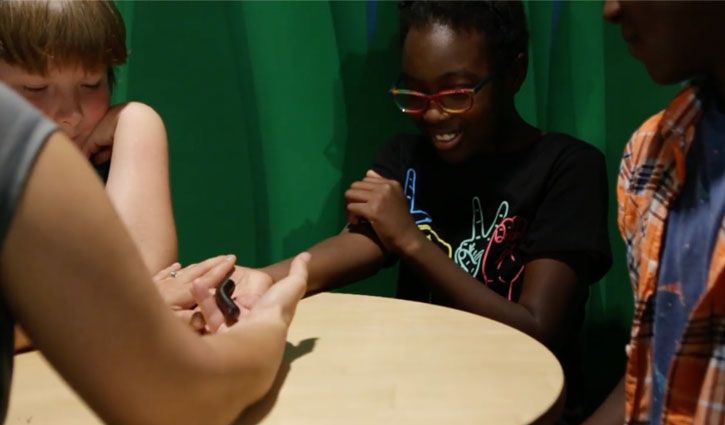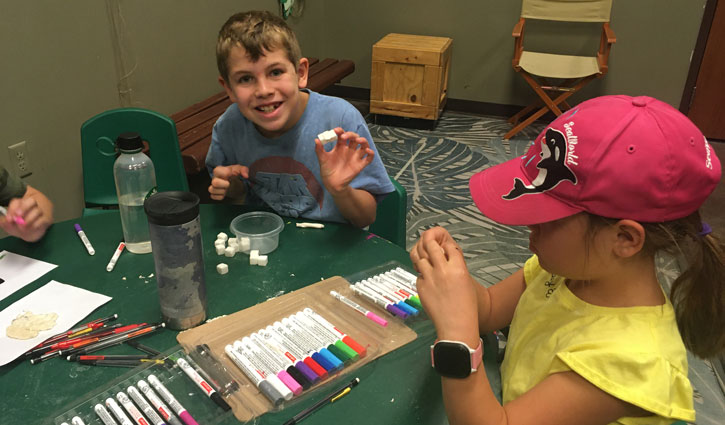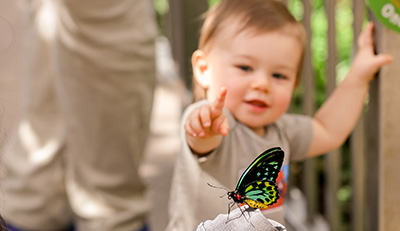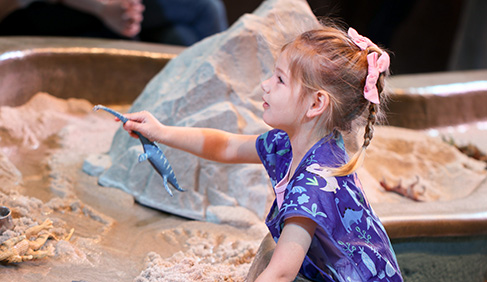Research from the University of California confirms that STEM skills are a better predictor of later academic success than early reading. Here at Thanksgiving Point, we focus on the “S” in STEM.
For example, when your child explores the ant colony at the Butterfly Biosphere, they will see ants doing different jobs. How do ants know which job to do? How do ants communicate?
As they explore further and ask curious questions, they will learn that ants communicate through unique chemicals called pheromones. They may wonder: do animals communicate in the same or different ways? Do pheromones play a role in human life?
This type of questioning is incredibly beneficial to brain development, logic, resilience, and other life-long skills.
Research shows that kids who engage in science improve their overall literacy. Why? Science and hands-on learning foster communication with others. Kids do this by posing questions, processing, analyzing, solving, and communicating what they discover.


Expanding a child’s vocabulary to include scientific words and terms creates higher self-confidence in future science learning.
We know that by the age of seven, most children have developed a positive or negative attitude towards science. And unfortunately, those attitudes carry on into adulthood.
Therefore, early experiences at discovery centers like the Museum of Natural Curiosity or one of our summer camps can alter their affinity for science and future life choices.
The ability to explore, discover and learn creates a growth mindset in your kids. With this mindset, they are more likely to remain engaged in things that take time to learn or when they don’t immediately know the answers. This positive attitude won’t just help them in science classes, but will help them tackle tough challenges in the classroom and beyond.
In a child’s early years, the process of learning is more important than the results. Thanksgiving Point is a launching point for science affinity with kids – and a launching point for future success.



